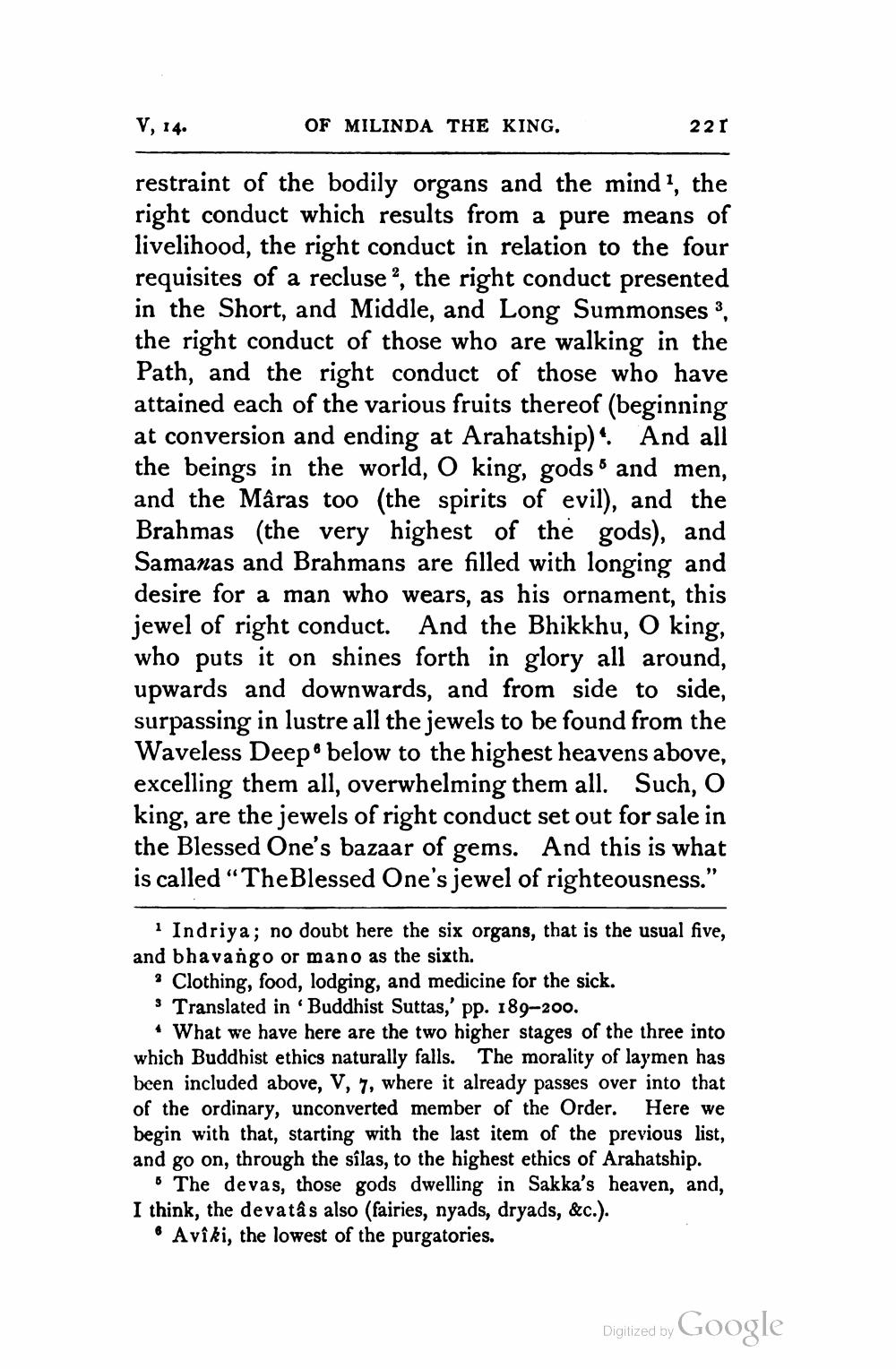________________
V, 14.
OF MILINDA THE KING.
221
restraint of the bodily organs and the mind 1, the right conduct which results from a pure means of livelihood, the right conduct in relation to the four requisites of a recluse ?, the right conduct presented in the Short, and Middle, and Long Summonses 3, the right conduct of those who are walking in the Path, and the right conduct of those who have attained each of the various fruits thereof (beginning at conversion and ending at Arahatship)And all the beings in the world, O king, gods and men, and the Mâras too (the spirits of evil), and the Brahmas (the very highest of the gods), and Samanas and Brahmans are filled with longing and desire for a man who wears, as his ornament, this jewel of right conduct. And the Bhikkhu, O king, who puts it on shines forth in glory all around, upwards and downwards, and from side to side, surpassing in lustre all the jewels to be found from the Waveless Deep below to the highest heavens above, excelling them all, overwhelming them all. Such, O king, are the jewels of right conduct set out for sale in the Blessed One's bazaar of gems. And this is what is called "TheBlessed One's jewel of righteousness."
1 Indriya; no doubt here the six organs, that is the usual five, and bhavango or mano as the sixth.
Clothing, food, lodging, and medicine for the sick. 9 Translated in Buddhist Suttas,' pp. 189-200.
4 What we have here are the two higher stages of the three into which Buddhist ethics naturally falls. The morality of laymen has been included above, V, 7, where it already passes over into that of the ordinary, unconverted member of the Order. Here we begin with that, starting with the last item of the previous list, and go on, through the sîlas, to the highest ethics of Arahatship.
The devas, those gods dwelling in Sakka's heaven, and, I think, the devatás also (fairies, nyads, dryads, &c.).
6 Avîki, the lowest of the purgatories.
Digitized by Google




